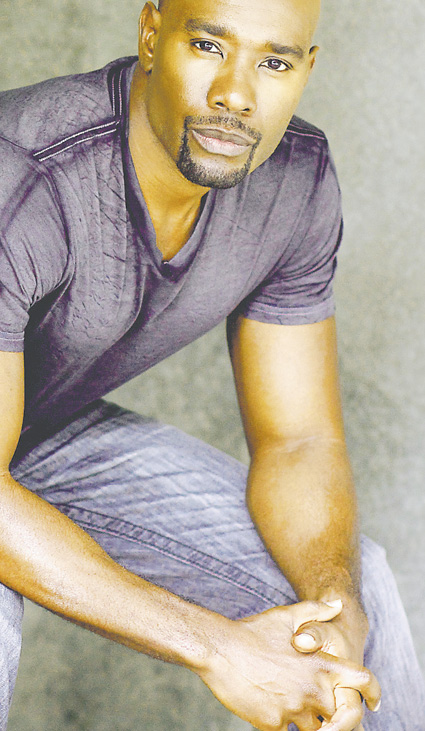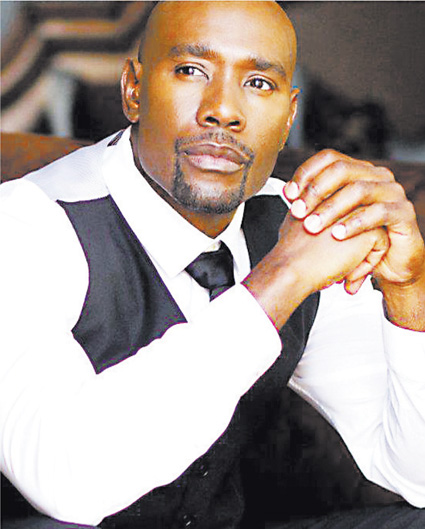MORRIS CHESTNUT
June 5, 2013 by Las Vegas Black Image Magazine
Filed under Cover Story, Feature
BY KIMBERLY BAILEY-TUREAUD
May the Best Man win
For MORRIS CHESTNUT, a changing Hollywood landscape has delivered a wealth of opportunities
When he first burst onto the scene in 1991’s “Boyz n the Hood,” the quietly charismatic Morris Chestnut appeared destined to become one of America’s most popular young actors.
If ubiquity is the measure, he seems to have fulfilled that destiny. Just in the last several years, he has starred in several successful films (“The Call,” “Think Like a Man,” “The Brothers,” “Not Easily Broken,” the forthcoming “Kick-Ass 2”) and television series such as “V” and “Nurse Jackie.” One of his most highly anticipated roles is due in November, when the long-awaited sequel “The Best Man Holiday” arrives in theaters.
“It was a great feeling working on ‘The Best Man,’ the first time, and there was a great camaraderie amongst the cast,” said Chestnut. “We all got along well with one another, because we really liked each other. I think it showed in the movie, and we are going to show it again in the sequel. There will be some shockers in the movie, but I can’t tell you about them now.”
Over the course of his career, Chestnut has witnessed tremendous growth in the movie industry as it relates to African-American talent. There is a movement away from what were once known as “black movies” — targeted at a very small demographic, often hinged on stereotypical depictions — and toward movies that feature nuanced black characters whose roles are not race-dependent.
“This is what I liked about doing the movie ‘The Call’ with Halle Berry,” said Chestnut. “I am proud that it wasn’t a ‘black film.’ Rather, it was just a movie with actors playing characters that just so happened to be African-American. Also, it was refreshing to showcase black-onblack love in this movie, which is seldom seen. It felt good.”
Naturally, Chestnut reflects fondly on the start of his acting career, when director John Singleton cast him as the ill-fated Ricky in “Boyz n the Hood.” The film, he said, “brought an awareness of the types of things that were going on … that many weren’t aware of at the time. It brought a focus to what was going on, and gives us a gauge to what has changed. I think we have progressed a lot since ‘Boyz n the Hood’ — even in cinema. When we did the movie, other movies such as ‘New Jack City’ and ‘Menace II Society’ were also in theaters. But our African-American images in film and television have transcended, and now we see progression.”
Chestnut’s relatability is such that he is often cast as a heroic figure or all-around nice guy. In the future, he wouldn’t mind portraying a villain.
“I would like to play a bad guy one day, but it is a funny situation: People just don’t see me like that,” he said. “They respond very differently every time I have ventured into roles that are not ‘good.’
In the movie ‘Think Like a Man,’ people would come up to me and tell me they didn’t like me in the movie. I really didn’t play a character in the movie that was that bad, he was just very self-centered and doing for himself. But, I think because the character portrayal came from me — people took it differently.” While he has been known as a sex symbol for virtually his entire career, Chestnut said that element of his show business persona has never been important to him personally.
“Being described as a sex symbol is something that I don’t focus on in this industry,” said Chestnut, a father of two who has been married to his wife, Pam, for 16 years. “When you start out in this industry, you want to be recognized for something — I just can’t make that a focus. I try to keep my focus on the work, and if I don’t, I think my work would suffer. A lot of people don’t realize that I am a very shy person, and get it misconstrued as being standoffish when they see me in public places. Just because you are an actor doesn’t mean you love attention, and want to be out there like that. That is just not the case with me.”







